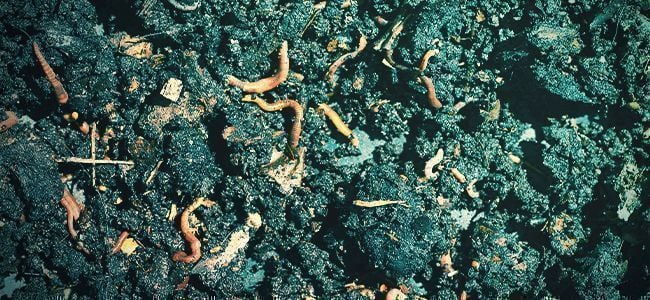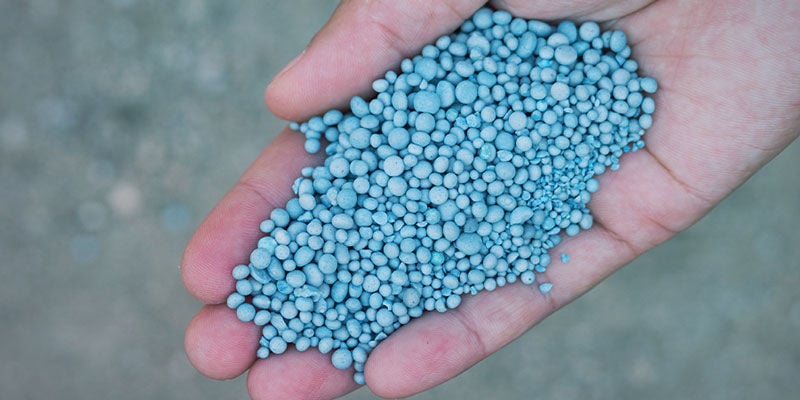
What's The Difference: Synthetic Vs. Natural Fertilizer
Synthetic vs organic fertiliser is a heavily debated topic when it comes to growing cannabis. So let’s take a look at the advantages and disadvantages of each.
Which cannabis nutrients are best, is a tricky question. Unfortunately, the short answer is: it depends. However, we shall endeavour to carefully analyse the pros and the cons of both organic and chemical nutrients. Then you will be in a position to evaluate which fertilisers will work best in your grow op.
Of course, a blend of organic and chemical nutrients is possible and preferred by many indoor and outdoor growers. We can’t dial the nutes in for you, but by the end of this blog, you will have a few ideas on how to devise a customised feeding schedule for your marijuana plants.
WHAT ARE ORGANIC FERTILISERS?

Straight away it is important to understand that the word “organic” doesn’t mean the same for fertilisers as it does food. Organic fertilisers are products that have their nutrients bound up in their natural forms, such as plant and animal waste, having gone through minimal processing. This often means they are a lot more natural, and more akin to what your cannabis would naturally find in soil when compared to the heavily process and refined synthetic fertilisers – which are often made from petroleum.
-
INDOORS
For the soil grower, organics is the way to grow indoors or outdoors. Most cannabis-specific soils have a perfect N-P-K ratio for cannabis plants and sufficient nutes for the first 3-4 weeks. Enzymes, beneficial fungi and silica are usually the only liquid supplements the grower needs for the vegetative phase.
-
OUTDOORS
Most ganja farmers, even if they are sowing seeds directly in the dirt of their plantation, will amend and improve the soil in advance. Although some growers will have the time to mix liquid organic fertilisers. Many do not, especially if the crop is large
ADVANTAGES OF ORGANIC FERTILISERS
 A potentially better end product
A potentially better end product
The first major advantage of using organics when it comes to cannabis is the end product. Anything you feed your cannabis is ultimately going to end up in the bud in one residual form or another, and whilst this isn’t going to be a concern for the cannabis plant itself, it may be for you. It is widely thought that synthetic fertilisers can make the end smoke much harsher. For this reason, synthetically fed cannabis is often flushed before harvest, though it is impossible to remove all ‘contamination’. This is much less of a concern with organic fertilisers, as they don’t leave chemical residue – resulting in what many believe is a smoother smoke.
 Lower start up cost
Lower start up cost
A basic organic nutrients pack, a half dozen plastic pots and a couple of 50l bags of soil will set you back less than €100. Simple base nutes and a few stimulants are usually included in most brands box sets/bundle deals.
 Less risk of overfeeding and toxic build up
Less risk of overfeeding and toxic build up
Organic fertilisers tend to release their nutrients very slowly, making it hard to overfeed your cannabis. Next to this, they do not often leave residual salts and acidity within the soil as they are natural, helping prevent toxic build-up and maintaining its health.
DISADVANTAGES OF ORGANIC FERTILISERS
 They are slow, sometimes too slow
They are slow, sometimes too slow
The nutritional release of an organic fertiliser plays by nature’s rules, and doesn’t always provide as soon as you need it. It is more of a long-term game plan, and will give a constant but slow release.
 Often unsuitable for hydroponics
Often unsuitable for hydroponics
Organic nutrients have a horrible tendency to cause all kinds of problems when introduced to hydro systems. Blockages and clogs are common problems. A 100% organic nutrient hydro grow will be something difficult to manage and you may not get that great results. A mix of chemical and organic nutes is the best compromise for now.
 Beware of rip offs
Beware of rip offs
All kinds of eco-friendly gunk, from simple molasses to exotic bat guano, are on the market labelled as 100% organic wonder elixirs. The best advice is to stick with the reputable brands and products with a proven track record. Research before investing too much cash. Just like other commercial organic products, a premium price is usually associated with many of the organic nutrient lines, so shop around for deals.
WHAT ARE SYNTHETIC FERTILISERS?

Synthetic based fertilisers are manmade, heavily process products that have been created to have a very specific and controlled content. They are often made from extracted petroleum and natural gas by-products. Being so specific in nature offers them lots of advantages, but comes with various drawbacks as well.
-
INDOORS
Most growers, even soil growers, will use at least one or two chemical fertilisers or supplements. The majority of hydroponics cultivators swear by incremental doses of synthetic feeds starting at 10-25% dosage from the very beginning. In contrast, the mostly organic soil grower sparingly adds synthetic bloom boosters to bulk up harvest weights without compromising flavour.
-
OUTDOORS
Chemical fertilisers are not favoured by most outdoor cultivators these days. They work just fine, but organics is in these days. Some synthetic stimulants can be added to speed up blooming and fatten up colas but that’s as far as most go. Generally, chemicals are associated with last stand struggles to fight off a pest invasion in the cannabis garden.
ADVANTAGES OF SYNTHETIC FERTILISERS
 Strong and specific
Strong and specific
Unlike organic fertilisers, synthetic based ones have a strong and specific content, allowing you to know exactly what you are giving your cannabis plants in term of nutritional content and ratio – a big advantage to veteran grows trying to control a grow right down to the last detail.
 Easier to achieve a higher quality
Easier to achieve a higher quality
Because of their composition, the nutrients within synthetic fertilisers are available for immediate absorption, allowing you to ensure your cannabis is getting what it needs, when it needs it. Thanks to the greater levels of control offered by synthetic fertilisers, it is often easier for beginners to produce an overall better quality grow.
 Huge yields for hydroponics
Huge yields for hydroponics
It really is true that huge hydroponics harvests can be cropped in about 75% of the time it takes to grow weed organically in soil. This is primarily because in a hydro set up plants roots can rapidly absorb far more of the available nutes from the oxygenated water. Plus chemical nutes are more hygienic and less problematic than risking organics in the reservoir.
DISADVANTAGES OF SYNTHETIC FERTILISERS
 Potentially produces harsher bud
Potentially produces harsher bud
As touched upon in the organics section, it is believed that chemically based synthetic fertilisers leave a residue within cannabis plants. Connoisseurs can always tell the difference between organics and hydroponics. Even if the grower has thoroughly flushed the marijuana and harvested with the greatest care, hydro weed tastes like hydro weed. Similarly, soil-grown cannabis tastes better and can be more easily flushed when fed organic nutes.
 It leaves toxins in the soil
It leaves toxins in the soil
Synthetic fertilisers are often very acidic, and leave salt residue in the soil. This effects pH drastically, and often requires active maintenance to keep soil safe, healthy and salt free. If left with a salt build up, nutritional absorption can be affected, resulting in malnourishment.
 Can be difficult to dial in
Can be difficult to dial in
If you happen to be using exclusively inorganic fertilisers, it can sometimes be difficult to keep pH and EC levels within optimal parameters. Organics are much simpler and usually require far fewer bottles of nutes to mix coming feeding time.
MIXING ORGANIC AND SYNTHETIC CANNABIS NUTRIENTS
There is nothing taboo about blending cannabis feeding with a combination of organic and inorganic nutrients. In fact, as alluded to above it is pretty commonplace in all kinds of grow ops.
Hydroponic growers add a touch of organics for flavour and soil growers’ bulk up buds with synthetic boosters all the time. Striking the right balance between organic and synthetic nutrients can deliver the heaviest harvests of the most flavoursome marijuana.
PICKING WHAT IS RIGHT FOR YOU
When it comes to making a decision between the two, there is no right or wrong answer. Which type of fertiliser is best is a heavily debated topic, and it will basically come down to what suits your needs the best. Do you want a natural grow that is kinder to the environment and soil? Or do you want complete and utter control of what your cannabis is being fed? At the end of the day, you need to pick what suits your situation.
-
 6 min
April 1, 2021
How To Make The Best Soil Mix For Growing Cannabis
Cannabis plants depend on soil rich in nutrients and beneficial microbes. Discover how to make the perfect soil mix below. Your plants will thank you!
6 min
April 1, 2021
How To Make The Best Soil Mix For Growing Cannabis
Cannabis plants depend on soil rich in nutrients and beneficial microbes. Discover how to make the perfect soil mix below. Your plants will thank you!
-
 6 min
March 5, 2020
How To Grow Organic Cannabis At Home
If you want to enjoy highest quality cannabis, then it‘s going to be organic herb. But growing cannabis organically can be a challenge. We explored organic farming techniques and put together a...
6 min
March 5, 2020
How To Grow Organic Cannabis At Home
If you want to enjoy highest quality cannabis, then it‘s going to be organic herb. But growing cannabis organically can be a challenge. We explored organic farming techniques and put together a...
-
 4 min
February 20, 2019
Molasses And Cannabis: Taking Your Soil To The Next Level
Molasses is a powerful, yet often overlooked tool when it comes to growing cannabis. Properly used, it can strengthen and boost the very foundation of your grow.
4 min
February 20, 2019
Molasses And Cannabis: Taking Your Soil To The Next Level
Molasses is a powerful, yet often overlooked tool when it comes to growing cannabis. Properly used, it can strengthen and boost the very foundation of your grow.
-
 4 min
December 14, 2018
Top 5 Natural Pest Repellents For Cannabis
Make sure your organic marijuana beauties stay that way. These top 5 organic pest control methods will ensure your weed remains natural and untouched by nasty chemicals.
4 min
December 14, 2018
Top 5 Natural Pest Repellents For Cannabis
Make sure your organic marijuana beauties stay that way. These top 5 organic pest control methods will ensure your weed remains natural and untouched by nasty chemicals.
-
 6 min
September 5, 2018
What Is Recycled Organic Living Soil (ROLS)
ROLS techniques allow you to create a self-sustaining soil biosphere in your garden. Save money on pesticides and fertilisers, improve the health of the environment, and enhance the quality of your...
6 min
September 5, 2018
What Is Recycled Organic Living Soil (ROLS)
ROLS techniques allow you to create a self-sustaining soil biosphere in your garden. Save money on pesticides and fertilisers, improve the health of the environment, and enhance the quality of your...
-
 3 min
August 5, 2018
Using Coconut Water As Organic Cannabis Fertiliser
Coconut water is an all-natural cannabis growth accelerator for organic and hydroponic growing systems. It boosts clone development, enhances root growth from seeds, and boosts overall plant...
3 min
August 5, 2018
Using Coconut Water As Organic Cannabis Fertiliser
Coconut water is an all-natural cannabis growth accelerator for organic and hydroponic growing systems. It boosts clone development, enhances root growth from seeds, and boosts overall plant...





 United States
United States










